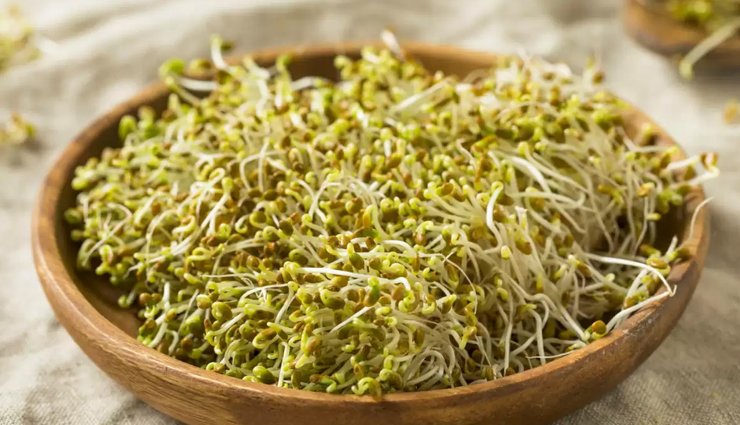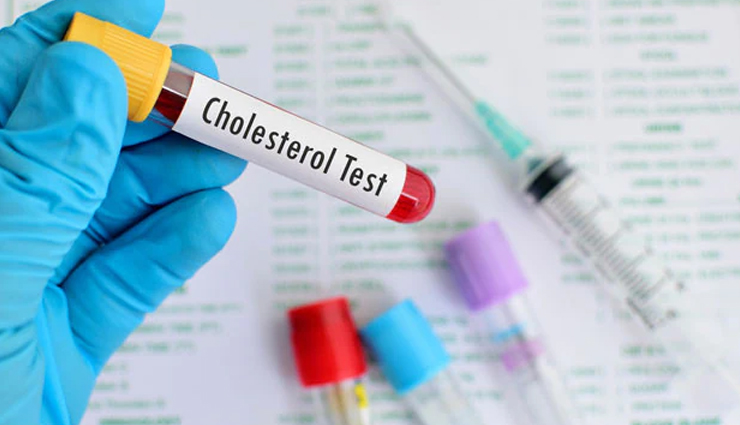- Home›
- Healthy Living›
- 6 Proven Health Benefits Of Alfalfa Sprouts
6 Proven Health Benefits Of Alfalfa Sprouts
By: Kratika Wed, 08 Feb 2023 08:20:24

Alfalfa sprouts (Medicago Sativa) are the germinated seedlings of the alfalfa plant.
Alfalfa leaves are bitter, but the young seedlings have a milder taste. Alfalfa is considered a herb and is used for medicinal properties. They originated in South and Central Asia, but are now grown in many regions of the world. The term “Alfalfa” comes from the Arabic phrase “al-fac-facah” which means “Father of all foods”.
They are widely popular in Asian cuisines and added to salads, soups, sandwiches, and as topping for certain dishes. Due to the abundance of essential nutrients like vitamins, minerals, antioxidants, dietary fibers, and other compounds, alfalfa sprouts provide many health and beauty benefits.

# Protection From Cancer(s)
Vitamin C, vitamin A, and other antioxidant compounds like phytonutrients, etc in alfalfa sprouts protect our cells and tissues from free radical damage. This reduces the risk of various cancers such as colon cancer, pancreatic cancer, rectal cancer, intestinal cancer, abdominal cancer, and lung cancer to name a few.
Free radicals are the unstabilized ions that steal electrons from neighboring molecules, and doing so causes oxidative damage to them. Phytoestrogens in alfalfa sprouts also help as they hinder the growth of new blood cells responsible for the rise of cancerous cells.

# Treats Menopause & Menstruation Irregularities
Vitamin K and phytoestrogens in alfalfa sprouts help in treating menstruation and menopause irregularities. Phytoestrogens help in balancing estrogen levels to minimize hormone-related symptoms of menopause like mood swings.
And, the anti-clotting properties of vitamin K helps in controlling excessive bleeding during menstruation.

# Promotes Weight Loss
Alfalfa sprouts promote weight loss because of their low caloric value of 23 calories per 100 grams. It is a wonderful snack that provides us energy and nourishment without much calorie overload.
Dietary fibers in alfalfa sprouts control overeating ( a major cause of obesity) as they provide stomach satiety and controls the urge to eat again and again. Nutrients like vitamins and minerals in alfalfa sprouts help with weight management by enhancing metabolism and improving digestion.

# Regulates Blood Sugar Level
Alfalfa sprouts help in managing diabetes as it has a low glycemic index of 15, and releases sugar into the bloodstream at a slow pace.This prevents a sudden spike in blood sugar levels and keeps our blood glucose under control.
Dietary fibers in alfalfa sprouts slow down the absorption of sugar by the bloodstream and help in managing diabetes. Despite this benefit, eat alfalfa sprouts in moderation as excessive consumption may drop blood sugar below healthy levels, and cause excessive hunger, excessive sweating, shakiness, dizziness, fast heartbeat, confusion, irritability, and moodiness.

# Cholesterol Management
Alfalfa sprouts help in managing cholesterol levels and improve our cardiovascular health.Dietary fibers and antioxidants in alfalfa sprouts reduce LDL cholesterol and minimize the risk of atherosclerosis.
Atherosclerosis is a condition that leads to hardening and narrowing of arteries due to plaque and fat accumulation within the arterial walls and is a leading cause of cardiovascular problems like heart attack, heart stroke, and coronary artery disease.

# Controls High Blood Pressure
Hypertension or high blood pressure is a common health condition that affects millions around the world and is a leading cause of cardiovascular and other health problems. Alfalfa sprouts help in controlling high blood pressure as they contain potassium, a natural vasodilator that relaxes our blood vessels and improves blood circulation.
Eat alfalfa sprouts in moderation as too much alfalfa sprouts may drop our blood pressure below the normal levels, and cause dizziness, fainting, nausea, dehydration, poor concentration, breathing difficulties, vision problems, and blood in urine, etc.





